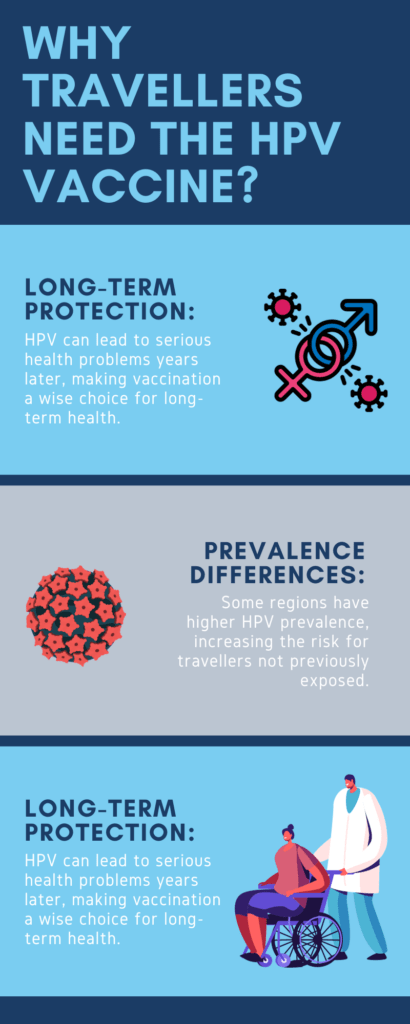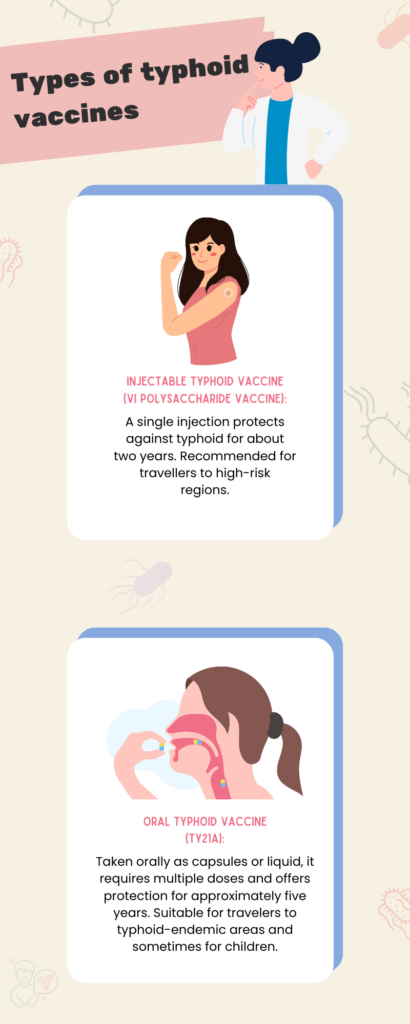Travel Vaccination Courses UK
Are you thinking about going on a trip to another country in the near future? For business or pleasure, going to a new place is an exciting adventure. However, before you start packing your bags, it’s crucial to take precautions to safeguard your health and well-being.
In this comprehensive guide, we’ll walk you through everything you need to know about travel clinics and vaccines before your next trip.
What are Travel Vaccines & Why are they Important?
Travel vaccines are specifically designed to protect you from diseases that may be prevalent in your destination but not in your home country. They are a critical part of pre-travel preparations, as they reduce the risk of contracting and spreading diseases.
When you get vaccinated, you not only safeguard your health but also contribute to global efforts to prevent the spread of infectious diseases.
Compliance with Entry Requirements
Many countries have specific vaccine requirements for entry. Failure to meet these requirements leads to denial of entry or quarantine, disrupting your travel plans.
To avoid such complications, research the vaccination requirements of your destination in advance.
There are different types of vaccines to travel abroad. Learn about some of the travel vaccines we offer at The Care Pharmacy travel clinic in Leeds.
Routine Vaccines
Regardless of travel, these vaccines are recommended or required for the general population. Such as:
- Measles, Mumps, and Rubella (MMR) vaccine
- Tetanus, Diphtheria, and Polio (Td/IPV) vaccine
- Seasonal flu vaccine
Travel-Specific Vaccines in UK
These vaccines fight against bacterial infectious and are recommended based on where you are travelling:
Hepatitis A
Hepatitis A is a liver infection caused by the Hepatitis A virus (HAV). This virus primarily spreads when an uninfected person consumes food or water contaminated with the faeces of an infected person.
When a person is infected with Hepatitis A, the symptoms might not appear immediately. It usually takes between 15-28 days for symptoms to develop, a phase known as the incubation period.
Common symptoms include:
- Jaundice (yellowing of the skin and eyes)
- Fatigue
- Sudden nausea and vomiting
- Abdominal pain, especially near the liver on the right side beneath the lower ribs
- Clay-coloured stools
- Dark urine
- Joint pain
- Loss of appetite
- Low-grade fever
How to prevent Hepatitis A?
Vaccination is the most effective way to prevent Hepatitis A. The Hepatitis A vaccine is an inactivated (killed) vaccine that prompts the body’s immune system to produce antibodies against the virus, providing long-term protection.
Typically, the Hepatitis A vaccine is given in two doses, six months apart. After the first dose, the body produces antibodies, but the second dose ensures long-term protection. The vaccine provides up to 20 years (or more) of protection against the virus.
Hepatitis B
The Hepatitis B vaccine prevents infection by the hepatitis B virus (HBV). This virus primarily affects the liver, leading to conditions such as acute and chronic hepatitis, liver cirrhosis, and even liver cancer. The vaccine protects by stimulating the body’s immune system to produce antibodies against the virus.
This vaccine is especially for travellers who might be exposed to blood or other body fluids, have sexual contact with the local population, or be exposed through medical treatment.
How many doses of Hepatitis B vaccine are there?
Usually, the hepatitis B vaccine is given in three separate doses. After the first injection, the second one is administered a month later, and the third comes six months after the initial dose.
Hepatitis A & B Combined
The Hepatitis A and Hepatitis B combined vaccine protects against both Hepatitis A and Hepatitis B viruses. The usual dosing schedule consists of three doses, given at 0, 1, and 6 months.
This vaccine is a great choice for people who want complete protection against both hepatitis viruses in one convenient shot.
HPV
The HPV vaccine protects against infections by human papillomaviruses (HPV). HPV is a group of more than 200 related viruses, and more than 40 HPV types can be easily spread through direct sexual contact, from the skin and mucous membranes of infected people to those of their partners.

Some HPV types can lead to cancer — cervical, anal, oropharyngeal, penile, vulvar, and vaginal cancers — while others can cause genital warts.
Dosage of the HPV Vaccine
The dosing schedule for the HPV vaccine can vary by age and vaccine type, but the common schedules are as follows:
- For individuals aged 9–14 years: Two doses are given. The second dose is administered 6–12 months after the first dose.
- For individuals aged 15–45 years: Three doses are recommended. The second dose is given 1–2 months after the first dose, and the third dose is given 6 months after the first dose.
Typhoid
The typhoid vaccine protects you from typhoid fever, a potentially serious and sometimes life-threatening bacterial infection caused by Salmonella Typhi.
Typhoid fever is typically transmitted through contaminated food and water and is more common in regions with poor sanitation and hygiene practices.

Cholera
A cholera vaccine is designed to protect against cholera, a bacterial infection caused by the bacterium Vibrio cholerae.
Cholera is primarily transmitted through contaminated water or food, and it can lead to severe diarrhoea and dehydration if left untreated.
When you travel to countries with poor sanitation and limited access to clean drinking water, your risk of ingesting cholera-causing bacteria increases significantly.
The Cholera vaccine is usually given in two doses. The initial dose is administered at least two weeks before travelling, and the second dose is taken at least one week after the first dose.
Yellow Fever
Yellow fever is a viral disease caused by the yellow fever virus, which belongs to the Flaviviridae family. It is primarily transmitted to humans through the bite of infected mosquitoes.
Yellow fever can manifest in various symptoms, from mild to severe. Mild cases may include fever, headache, muscle pain, nausea, and vomiting.
The prevalence of yellow fever varies by region. It is endemic in parts of Africa and South America, particularly Nigeria, Ghana, and Colombia.
The usual vaccination consists of receiving a single vaccine dose, which grants immunity for at least 10 years. Certain countries demand evidence of yellow fever vaccination as a prerequisite for entry.
Rabies
Rabies is a viral infection that primarily affects mammals, including humans. It is caused by the rabies virus, which is typically transmitted through the saliva of an infected animal via bites or scratches.
Rabies is a serious and often fatal disease if not treated promptly.
A rabies vaccine is available to protect both humans and animals from the rabies virus.
The rabies vaccination schedule and dosage may vary depending on the vaccine brand and the individual’s risk factors. It’s essential to consult with a healthcare professional or travel clinic for personalised advice.
Japanese Encephalitis
Japanese encephalitis (JE) is a viral infection primarily affecting the central nervous system. It is transmitted through the bite of infected mosquitoes, particularly in rural and agricultural areas of Asia and the Western Pacific.
Japanese encephalitis can lead to severe symptoms, including high fever, headache, neck stiffness, disorientation, coma, and even death in some cases.
The vaccine is administered in two doses, with an initial dose followed by a booster dose. The typical schedule is as follows:
- Initial dose: The first dose is given at least 28 days before potential exposure to the virus. This allows your immune system to build up protection against Japanese encephalitis.
- Booster dose: A booster dose is usually administered between 12 to 24 months after the initial dose. This booster helps to enhance and prolong immunity.
For travellers who are planning shorter trips or last-minute travel to areas with a high risk of Japanese encephalitis, an accelerated schedule is recommended.
Tick-Borne Encephalitis
Tick-borne encephalitis (TBE) is a viral infection that affects the central nervous system. It is primarily transmitted to humans through the bite of infected ticks, although it can also be transmitted through the consumption of unpasteurised dairy products from infected animals.
TBE is most commonly found in parts of Europe and Asia, particularly in forested and rural areas where ticks are prevalent.
The TBE vaccine is typically administered as a series of three doses. The standard dosing schedule is as follows:
- First Dose: Initial vaccination
- Second Dose: Given 1 to 3 months after the first dose
- Third Dose: Given 5 to 12 months after the second dose
A booster dose is recommended every 3-5 years for long-term protection, especially for individuals who continue to be at risk of exposure to TBE.
Meningococcal Meningitis
Meningococcal meningitis is a serious bacterial infection that can cause inflammation of the protective membranes surrounding the brain and spinal cord. The bacterium Neisseria meningitis causes it and can lead to severe illness or even death if not treated promptly.
Travellers, especially those who plan to visit busy places such as festivals, pilgrimages, or shared dormitory accommodations, could be at a higher risk of getting meningitis ACWY.
Travel Health Advice
It is important to get professional travel health advice before your trip abroad. Book an online appointment to learn more about our travel clinic and vaccine services in Leeds and Bradford.
FAQs
- How long before travelling should I get hepatitis A vaccination?
A hepatitis A vaccine is given as just one shot. It’s best to get it at least 2 weeks before you go abroad. It keeps you safe for a year, and after that, you’ll need another shot. If you get the booster shot, you won’t need more shots for 25 years.
- What vaccines do I need for Europe?
For European travel, update your tetanus/diphtheria/whooping cough vaccine if it’s been over 10 years. Consider measles, meningococcal, influenza, and pneumonia vaccines too.
- How often do you need a tetanus shot?
In the UK, it’s important for adults to have a tetanus shot, also known as a tetanus booster, every 10 years. A booster shot is an additional dose of the vaccine that you receive several months or years after your last one.
- Which travel vaccines are free on the NHS?
The following travel vaccines are available free on the NHS from your GP surgery:
- polio (given as a combined diphtheria/tetanus/polio jab)
- typhoid
- hepatitis A
- cholera
- Which countries are at high risk for hepatitis A?
Regions such as Asia (excluding Japan), Africa, Mexico, Central and South America, as well as the Caribbean islands, face a potential threat of HAV infection.
